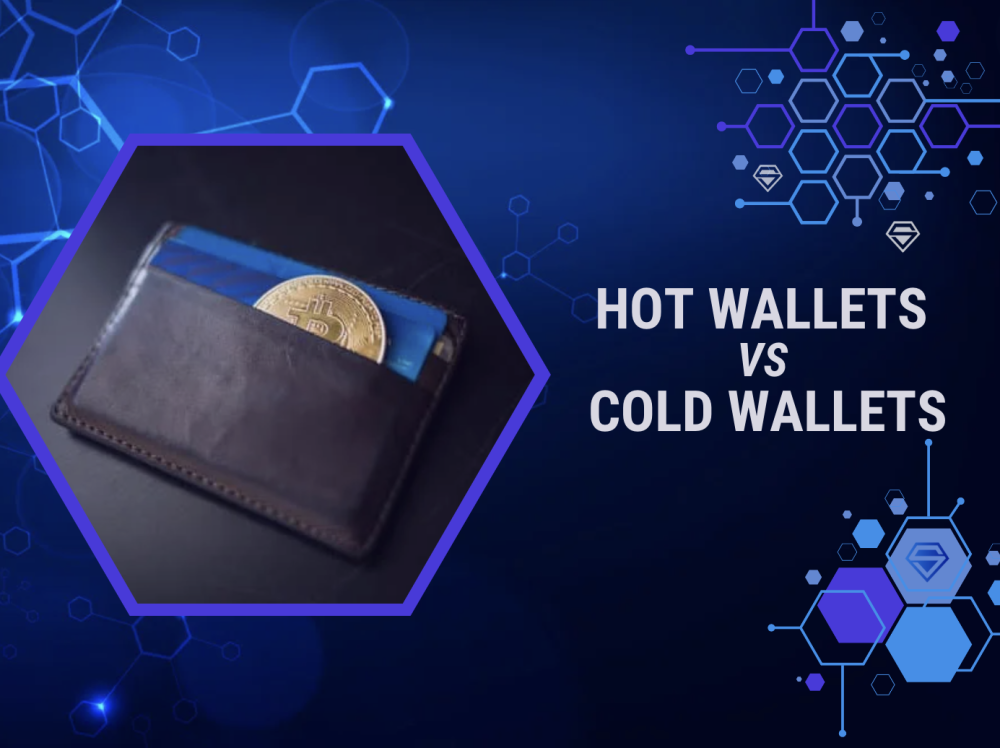
20. October, 2023
How does Ethereum Smart Contracts Revolutionize the World of Contracts?
In a constantly evolving world, so too must the way we conduct our affairs. Traditional contracts have long been the bedrock of our legal and financial systems, but as the digital age marches forward, they are facing their own evolution. If you’re wondering how blockchain technology and Ethereum smart contracts could potentially revolutionize the way we handle agreements, you’re in the right place.
In this article, we will delve into Ethereum smart contracts, exploring their potential to transform the world of contracts as we know it. Let’s address your concerns and provide insights into this innovative technology.
The Ethereum Smart Contract Revolution
Before we dive into the revolution itself, let’s clarify what Ethereum smart contracts are in simple terms.
These are self-executing contracts with the terms of the agreement directly written into code. They run on the Ethereum blockchain, which is a decentralized, secure, and tamper-resistant digital ledger.
Now, let’s address the pain points these contracts aim to solve.
Intermediaries
Traditional contracts often rely on intermediaries such as lawyers, banks, or notaries. These intermediaries not only add costs but can also introduce delays and complications into the process. Ethereum smart contracts cut out the middlemen, making transactions quicker and less expensive.
Trust Issues
Trust is a central issue in conventional agreements. Parties must trust each other and the intermediaries involved. Ethereum smart contracts, on the other hand, rely on blockchain technology, which is built on trustless principles. This means that parties don’t need to trust each other; they only need to trust the code.
Transparency and Security
Traditional contracts can be complex, leading to disputes and misunderstandings. Smart contracts are transparent and immutable. Once deployed, their code and execution are visible to all parties, reducing the potential for disputes.
Benefits and Applications of Ethereum Smart Contracts
Here are some of the benefits and applications of Ethereum Smart Contracts.
- Transparency: Ethereum smart contracts provide an unparalleled level of transparency in the world of agreements. By being recorded on a public blockchain, all parties involved can access and review the contract’s terms and execution history. This transparency reduces the chances of hidden or malicious clauses, fostering trust among the stakeholders.
- Global Accessibility: The beauty of Ethereum smart contracts lies in their global reach. These contracts operate on a decentralized network accessible from anywhere in the world, enabling international agreements without the need for complex cross-border negotiations. This feature is especially valuable for businesses with global operations.
- Trustless Nature: Traditional contracts often require a certain level of trust between parties and intermediaries. Ethereum smart contracts are trustless, meaning that participants don’t need to have faith in one another. Instead, they place their trust in the code’s robustness and the blockchain’s security, reducing the risks of fraud or unfulfilled obligations.
- Immutability: It becomes immutable once a smart contract is deployed on the Ethereum blockchain. This means that its terms and execution processes are unalterable without consensus from all involved parties. Immutability ensures the integrity of the contract and protects it from unauthorized changes or disputes.
As for its applications, Smart Contracts can be used in supply chain management. These contracts can be used to automate the tracking of goods, ensuring their authenticity and origin. This results in a more transparent and secure supply chain, reducing the chances of counterfeit products entering the market.
Real estate transactions also benefit from Ethereum smart contracts by simplifying property transfers by automating the process of transferring ownership, escrow, and even rental agreements. This reduces administrative overhead and provides a transparent and efficient method for handling real estate transactions.
The same is true for Legal services. While not replacing lawyers, these contracts can help automate certain legal processes, such as notarization or the execution of simple agreements.
Additionally, democracy and voting can become more secure and efficient with Ethereum smart contracts. Voters can securely cast their ballots, and results are tamper-proof and transparent.
So, How do you Choose the Right Ethereum Smart Contract?
Traders embarking on their journey into Ethereum smart contracts face a pivotal decision: choosing the smart contract that best aligns with their trading needs and strategies. The Ethereum ecosystem, replete with innovation, offers an array of options, each with its own distinct features and capabilities.
Let’s explore popular choices such as ERC-20 and ERC-721 tokens and the specific use cases they cater to.
ERC-20 Tokens:
ERC-20 tokens are the cornerstone of Ethereum-based assets. These tokens adhere to a set of standardized rules and interfaces, making them highly interchangeable and transferable. They are the go-to choice for traders looking to engage with cryptocurrencies and digital assets.
ERC-20 tokens are the lifeblood of initial coin offerings (ICOs) and decentralized exchanges (DEXs), making them a preferred choice for traders seeking liquidity and versatility.
One of the primary advantages of ERC-20 tokens is their liquidity. They are widely accepted on various cryptocurrency exchanges, and traders can easily acquire and trade them. Many ERC-20 tokens are utility tokens that can access specific functionalities within a blockchain-based platform. Traders often seek these tokens for their potential to unlock exclusive services, applications, or discounts.
ERC-721 Tokens
In contrast to ERC-20 tokens, ERC-721 tokens are non-fungible tokens (NFTs). Each ERC-721 token represents a unique digital asset or item, such as digital art, collectibles, or real estate. NFTs have garnered significant attention for their ability to represent ownership and provenance of one-of-a-kind digital and physical assets.
For traders with a penchant for art, collectibles, or unique digital assets, ERC-721 tokens are the gateway to a thriving NFT marketplace. The uniqueness and irreplaceability of ERC-721 tokens provide a transparent and immutable record of ownership and provenance. This characteristic is particularly valuable for traders interested in rare or historically significant digital assets.
When deciding between ERC-20 and ERC-721 tokens, traders must first consider their trading strategy, risk tolerance, and the specific assets they wish to trade. ERC-20 tokens offer flexibility and liquidity while, ERC-721 tokens are ideal for traders looking to explore the exciting world of unique, one-of-a-kind assets and the burgeoning NFT market.
Final Thoughts
Ethereum smart contracts have the potential to revolutionize the world of contracts by addressing pain points associated with traditional agreements. Their benefits and wide-ranging applications make them an exciting and innovative option for various industries. When it comes to traders, selecting the right Ethereum smart contract is key to harnessing the technology’s full potential.
Embrace the future, and explore how Ethereum smart contracts can redefine your approach to agreements and transactions. The revolution has just begun, and the possibilities are limitless.


